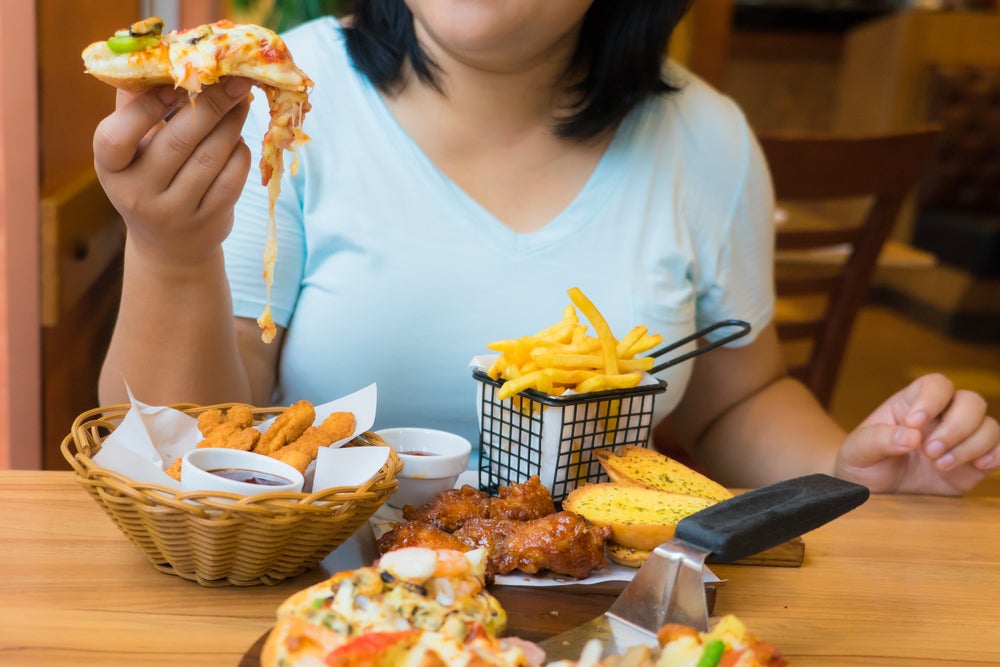The prevalence of the #GirlDinner trend on TikTok highlights Generation Z’s non-traditional attitude to many aspects of life.
This attitude may prove disruptive for many of today’s big industries, but it will undoubtedly bear some of the responsibility for our species’ surviving climate disaster. Gen-Zer’s thrifty tastes and penchant for the avant-garde will mean they are more likely to accept and even demand the radical changes to society that real climate action requires.
This is my meal – I call it #GirlDinner
#GirlDinner is a TikTok trend, complete with its own theme song, which focuses on Gen Z’s unconventional approach to their evening meal. The idea behind it is that the favourite meal of many young women—or self-proclaimed “teenaged girls in their twenties”—is a mix of their favourite snack foods and whatever leftovers they can find squirreled away at the back of the fridge.
Examples from #GirlDinner include a small bowl of mac n’ cheese with chopped fruit and a shop-bought salad; a torn-up flatbread, cucumber batons, tzatziki and hummus, a handful of olives, and a ball of mozzarella; or just an enormous slice of Dairy Queen ice cream cake.
Essentially, it conceptualizes ‘dinner’ as a meal consisting of things you most enjoy eating, or those items that are easiest to get your hands on, instead of a traditional collection of three staple ingredients (meat, carbs, veg), served on a traditional plate (floral, Weatherspoons-esque), at a traditional time (shall we say 7:30?).
Generating societal change
Gen Z’s rejection of the traditional carries through to many other areas of their lives. Take the popularity of Depop and Vinted: a non-traditional approach to retail, where procuring clothes in a thrifty manner is seen as being far trendier than any brand name or logo could be. Similarly, Gen Z’s approach to work is defined by flexibility (the gig economy) and prioritizing wellbeing (the “lazy girl job”). Generation Z’s priorities are changing, and they are changing the world to fit them.
How well do you really know your competitors?
Access the most comprehensive Company Profiles on the market, powered by GlobalData. Save hours of research. Gain competitive edge.

Thank you!
Your download email will arrive shortly
Not ready to buy yet? Download a free sample
We are confident about the unique quality of our Company Profiles. However, we want you to make the most beneficial decision for your business, so we offer a free sample that you can download by submitting the below form
By GlobalDataThere have been suggestions that ‘radical decarbonization’ may not require humanity to change its entire modus operandi, due to technologies like green hydrogen and scaled-up off-shore wind. But it is likely that we will need a dramatic shift away from the rampant consumerism that has defined affluent modern living.
#GirlDinner – a new way of ‘Zee-ing’ the world
This could mean the end of the private car model, the end of the nuclear family model, or the end of two-up-two-down private family homes. Instead, we may need to adopt an economic approach focused on efficiency through sharing, with communal living, fully integrated public transport, and more community-based family structures.
Above all, we will need an understanding of what it means to live a meaningful life that does not rely on the constant consumption of goods: an “alternative hedonism”, as outlined by Kate Soper. This change may, understandably, be difficult for older generations that are more set in their ways—especially if the changes are forced through by the government.
But the popularity of #GirlDinner among Gen Z suggests that this younger generation will be able to take these changes in their stride, and will actively seek out sustainable choices that hold real value for them—rather than just a consumerist buzz.
Bank of America may therefore be correct in calling Generation Z the “most disruptive generation ever” and their willingness to tear up the rulebook may be the key to mitigating climate change and ensuring our species’ survival.








Related Company Profiles
Bank of America Corp